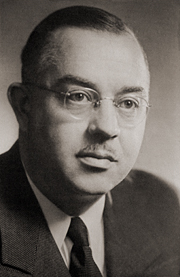A Quote by Edward Young
Wouldst thou be famed? have those high acts in view, Brave men would act though scandal would ensue.
Related Quotes
Poem by Howard A. Walter (Character) I would be true, for there are those who trust me; I would be pure, for there are those who care; I would be strong, for there are those who suffer; I would be brave, for there is much to dare. I would be friend of all--- the foe, the friendless; I would be giving, and forget the gift; I would be humble, for I know my weakness; I would look up, and laugh, and love, and lift.
O Jesus! Remember the sadness that Thou didst experience when, contemplating in the light of Thy divinity the predestination of those who would be saved by the merits of Thy sacred passion, thou didst see at the same time the great multitude of reprobates who would be damned for their sins, and Thou didst complain bitterly of those hopeless, lost, and unfortunate sinners.
If thou hadst thy will what wouldst thou reserve?" said Manwe. "Of all thy realm what dost thou hold dearest?" All have their worth," said Yavanna, "and each contributes to the worth of the others. But the kelvar can flee or defend themselves, whereas the olvar that grow cannot. And among these I hold trees dear. Long in the growing, swift shall they be in the felling, and unless they pay toll with fruit upon their bough little mourned in their passing. So I see in my thought, would that the trees might speak on behalf of all things that have roots, and punish those that wrong them!
It seems that wherever the Welfare State is involved, the moral precept, "Thou shalt not steal," becomes altered to say: "Thou shalt not steal, except for what thou deemest to be a worthy cause, where thou thinkest that thou canst use the loot for a better purpose than wouldst the victim of the theft."
All of the Ten Commandments that are good were old; all that were new art foolish. If Jehovah had been civilized he would have left out the commandment about keeping the Sabbath, and in its place would have said: "Thou shalt not enslave thy fellow-men." He would have omitted the one about swearing, and said: "The man shall have but one wife, and the woman but one husband." He would have left out the one about graven images, and in its stead would have said: "Thou shalt not wage wars of extermination, and thou shalt not unsheathe the sword except in self-defence.




































